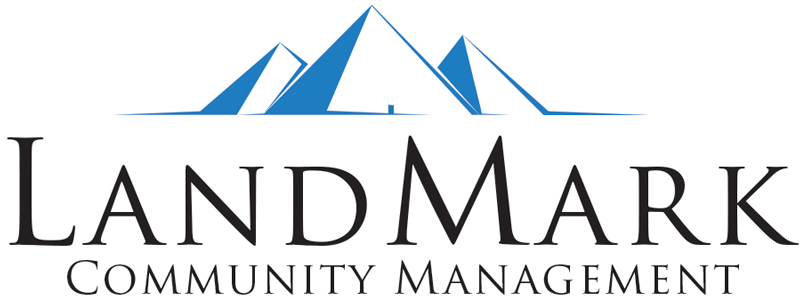Potential homebuyers should familiarize themselves with HOA initiation fees, as some communities charge this to new owners. In the same way, board members should understand the limitations of authority when it comes to charging this fee.
What is an Initiation Fee When Buying a House?
An HOA initiation fee is essentially a one-time fee that associations charge to new homeowners. It is a capital contribution that a new owner pays upon transferring ownership of a property in the HOA. Other terms for HOA initiation fees are capital contribution fee, transfer fee, new owner fee, working capital contribution, and buy-in fee.
Some associations charge this fee once to the very first homeowner of a new property. However, many other associations charge this fee every time a property changes ownership. It is basically an entry fee that new members of the community pay to contribute to the association’s funds.
It is worth noting that HOA initiation fees are usually included in the closing costs. As such, buyers will know about the fee ahead of time, giving them time to adjust or reevaluate their decision to buy into the community. Potential homeowners looking at properties within an HOA should ask about the initiation fee before closing to avoid surprises.
What are HOA Initiation Fees Used For?
Initiation fees function as working capital for new developments. They help establish the association’s funds, which can be used to pay for initial fixed costs. While these fixed costs can vary, they usually include maintenance, insurance, and other registered agent fees.
For established communities, initiation fees can serve different purposes. More often than not, though, an HOA uses these fees to bolster its reserve account. An HOA’s reserves play an important role in ensuring the community’s financial stability and preserving the association’s physical structures.
Sometimes, an HOA will use the initiation fee to fund the costs of setting up a new account. These costs can include adding a new account to its management software, updating existing records, and creating a welcome kit.
How HOA Initiation Fees Differ From Other Fees
Living in an HOA community offers several benefits, including access to amenities and convenient services. However, it also comes with financial obligations. There are a few monetary charges that homeowners must be aware of, and they all differ from initiation fees.
HOA Dues

Homeowner dues, also known as regular dues or HOA fees, are payments that homeowners make regularly to the association. These dues are part of homeowners’ financial obligations. They agree to pay these dues upon purchasing a property within the neighborhood.
Dues or regular fees are calculated based on the annual budget, which includes the anticipated expenses for the year. Associations collect these dues on a monthly, quarterly, or annual basis. These dues go towards operating expenses, including maintenance and upkeep, insurance premiums, management fees, office supplies, and other recurring costs.
When homeowners fail to pay their dues, they can face various potential penalties. These include late fees and interest charges, temporary suspension of privileges, legal action, liens, and foreclosures.
HOA Special Assessments
Special assessments serve as a way for HOAs to meet their financial needs under certain conditions. Typically, an HOA will charge this assessment to pay for unanticipated expenses when the operating fund or reserves can’t cover them. Sometimes, an HOA will levy this fee to pay for improvements or other projects, too.
Special assessments don’t happen often. A financially healthy HOA shouldn’t have to levy special assessments except on very rare occasions. Whether or not an HOA can charge this assessment and what an HOA can use them for depends on the association’s governing documents. Unlike HOA initiation fees, special assessments typically apply to all homeowners equally.
HOA Fines

Homeowners associations have rules that residents must follow. A resident violating a rule can be subject to monetary fines.
An HOA’s authority to levy violation fines rests with state laws and the association’s governing documents. Texas law does not give associations automatic authority to levy fines. The governing documents must grant this authority.
If an HOA’s documents allow monetary fines, it must also develop a fine policy and schedule. The CC&Rs and/or bylaws must also reflect this policy and schedule per Section 209.0061 of the Texas Property Code. Moreover, before levying a fine, an HOA must give homeowners notice and an opportunity to correct the violation or contest the charge.
Who Pays HOA Initiation Fee?
Homeowners associations charge the initiation fee to the new homeowner. However, initiation fees usually appear as part of the closing costs. Therefore, the buyer and seller can negotiate the responsibility of covering this fee. More often than not, though, the buyer shoulders the cost of the initiation or transfer fee.
Do All HOAs Collect an Initiation Fee?
Not all HOA communities collect an initiation fee. Whether or not an HOA can collect such a fee depends on state laws and the governing documents. New homeowners should ensure that their HOA has the authority to charge this fee to protect their rights. Similarly, HOA board members should confirm the association’s ability to collect this fee to avoid liability.
How Much are HOA Initiation Fees?
Initiation fees can vary greatly depending on the association. They can be as low as $100 or as high as a year’s worth of regular dues. Some communities charge a fixed price instead. However, on average, new buyers should expect to pay two or three times the regular dues.
To confirm the initiation fee’s amount, it is best to check the HOA’s governing documents. Buyers can also confirm the amount with their real estate agent, the community manager, or an HOA board member. It also appears as part of the closing costs, so buyers should have enough time to get things in order.
HOA Initiation Fee for the Community
Many associations charge HOA initiation fees, as permitted by state laws and the governing documents. Homeowners must pay this fee to buy into the community and make a capital contribution. While some may find this fee discouraging, it is essential to remember that it serves an important purpose in the grand scheme of things.
Landmark Community Management can help HOAs and condominiums set up and collect initiation fees. Call us today at 512-569-5527 or contact us online to learn more!
RELATED ARTICLES:


